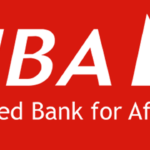- A model for Nigeria
International Monetary Fund has said, which should be of interest to Nigerian leaders.
The Fund cited Saudi’s “sweeping pro-business reforms and a sharp rise in oil prices and production” which have powered the country’s recovery from a pandemic-induced recession in 2020.
$418m Paris Club refund: Govs tackle Malami, say action fraudulent, self-serving
Anthony Joshua responds to concerns over Saudi Arabia fight
Saudi’s Gross Domestic Product is expected to grow by 7.6 per cent, which the fund said is its fastest growth in almost a decade, Amine Mati and Sidra Rehman said in an article published yesterday (August 17, 2022), citing IMF’s recent Article IV consultation report.
Mati is an assistant director while Rehman is an economist, both of the IMF’s Middle East and Central Asia Department.
While the country is importing commodities at higher prices, inflation will remain contained at 2.8% this year as the Central Bank tightens policy in line with the US Federal Reserve. This is contrary to Nigeria’s inflation rate which spiked to 19.64% in July.
“Managing oil revenues in a sustainable manner, so that spending does not rise and fall in line with the price of oil, would promote fiscal sustainability and prevent a return to previous oil-driven cycles of boom and bust. So too would far-sighted budget planning and policies to diversify the economy,” the authors noted.
Nigeria, Africa’s biggest oil producer, has a history of revenue instability, with regular seasons of fiscal boom and bust, as the price of oil changes on the international market.
Mati and Rehman note that reforms to energy prices so that domestic fuel prices converge with international prices would generate fiscal savings as well as support the authorities’ climate objectives, set out in the Saudi Green Initiative. According to them, ongoing efforts to strengthen social safety nets through targeted schemes would protect the vulnerable from higher energy bills.
“With strong central bank supervision, the financial sector remains resilient and systemic risks are low. Increases in interest rates are expected to have only a limited impact on the Saudi economy in an environment of high oil prices and strong liquidity,’ they added.

 Join Daily Trust WhatsApp Community For Quick Access To News and Happenings Around You.
Join Daily Trust WhatsApp Community For Quick Access To News and Happenings Around You.

